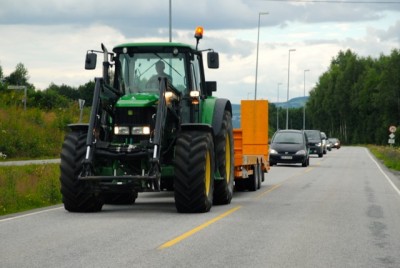A so-called “green tax commission” has met a torrent of criticism after presenting a long list of proposals for new taxes and fees aimed at reducing Norway’s carbon emissions, improving the environment and boosting economic development. Those expected to pay the highest price for curbing emissions were motorists and farmers, and even environmental organizations rejected many of the commission’s ideas.

Finance Minister Siv Jensen of the conservative Progress Party had commissioned the report, but seemed unlikely to follow much if any of its recommendations. Among them were proposals for a string of new taxes to make it much more expensive for Norwegians to drive their cars, by introducing new and higher taxes on various fuels, a new tax on car insurance, a new tax on the value of parking provided by employers, imposing much higher carbon taxes on taxis, delivery vans and recreational vehicles and, most controversially, eliminating all the current tax incentives for driving electric vehicles.
Farners face new taxes on all production of red meat like lamb and beef, because it generates far more carbon emissions than, for example, production of poultry. The commission also recommended eliminating much of the so-called “agricultural production support” (subsidies) that Norwegian farmers now enjoy to protect their industry from foreign competition. Lars Petter Bartnes, leader of Norway’s powerful farmers’ lobby Norges Bondelag, voiced immediate objections.
“This is a strange and very little goal-oriented approach,” Bartnes told newspaper Dagens Næringsliv (DN) on Thursday. He argued that farmers already have cut emissions by 15 percent since 1990 and he urged support for more ties between farming and forestry instead of merely imposing “passive taxes and fees.” He also argued that production cuts within the meat industry would increase imports, leading to more emissions elsewhere on the globe plus those generated through transport.
Tax-free uproar
The commission also recommended eliminating tax-free sales and quotas for alcoholic beverages, tobacco and other items, arguing that they promote more airline travel, which in turn generates more carbon emissions. Even though the vast majority of Norwegians recognize the threat of climate change, and worry about the recent rash of storms and floods and lack of snow for skiing, they fly more than ever before. A study released last week showed that Norwegians are among the most eager airline passengers in Europe, with an average of five flights per year. Since tax-free sales subsidize the costs of airport operations in Norway, its elimination would presumably remove an incentive for traveling and make airline ticket prices much higher. The airlines, it’s reasoned, would pass on the higher costs of using Norwegian airports after a loss of tax-free revenues.
Measures such as these would be highly unpopular and risky for politicians to introduce. While environmental organizations including Naturvernforbundet (Friends of the Earth Norway) supported an elimination of tax-free sales at airports, most rejected elimination of incentives for electric cars. Several don’t think imposition of ever-higher taxes in other areas would have the desired effect either, because many affluent Norwegians would simply pay them. The problems wouldn’t go away, noted spokespersons for both Zero and Bellona.
‘Challenging and demanding’
Jensen herself was non-committal but called “many” of the individual proposals “challenging and demanding.” The also defy her party’s own policies, so it’s unlikely she’ll support them.
Other top politicians were critical as well, with Ola Elvestuen of the Liberal Party and Nikolai Astrup of the Conservatives disagreeing with the proposal to eliminate electric car incentives and commenting that many of the other proposals “don’t take us in the right direction.”
As Norway was leading some of the climate negotiations now going on in Paris, local officials back home were thus disagreeing over climate measures at home. Cutting back on Norway’s oil and gas production would, of course, dramatically cut Norway’s carbon emissions and allow Norwegians to avoid onerous measures themselves, but oil industry cutbacks are rarely up for serious discussion because of potential job losses and economic consequences – especially at a time when the oil industry is cutting back anyway because of low oil prices.
newsinenglish.no/Nina Berglund

